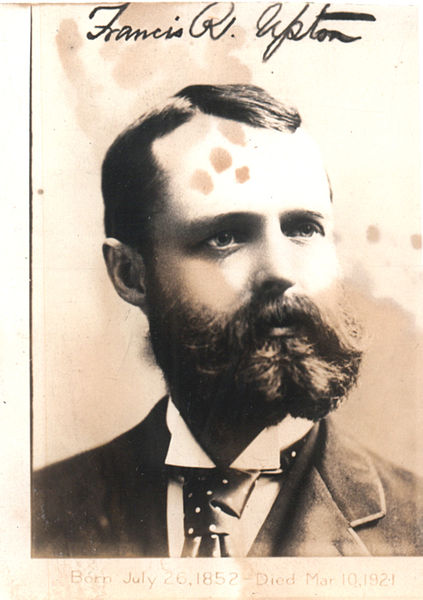<Back to Index>
- Physicist Francis Robbins Upton, 1852
- Painter Constantino Brumidi, 1805
- 4th Vice President of the United States George Clinton, 1739
PAGE SPONSOR

Francis Robbins Upton (1852 in Peabody, Massachusetts – March 10, 1921 in Orange, New Jersey) was an American physicist and mathematician.
Upton graduated from Phillips Academy, Andover, in 1870. He studied at Bowdoin College in Brunswick, Maine, at Princeton University where he received his M.S., and in Berlin, where he worked together with Hermann von Helmholtz.
In 1878, he joined the laboratory of Thomas Alva Edison in Menlo Park, New Jersey. There he dealt with technical problems in a mathematical way, including electric light, the watt - hour meter, and large dynamos. In October 1879, the first electric light was presented to the public. He was partner and general manager of the Edison Lamp Works, which he founded together with Edison in 1880. Upton published articles in Scribner's Monthly and Scientific American. Since 1958, the Princeton University has had the Francis Upton Graduate Fellowships.
In 1890, Upton patented the first electric fire alarm and detector along with a Mr. Fernando J. Dibble, an accomplishment of his which is often overlooked, stemming most probably from a typographical error that labels the device a "Portable Electric Tire - Alarm.".